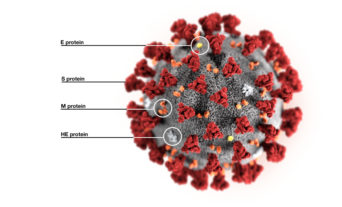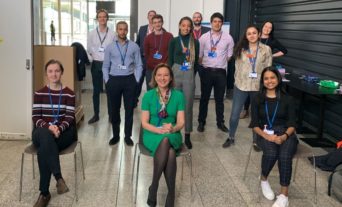I finally realised the implications of the oncoming pandemic with the first UK death (7 March), by which time Italy had registered 47 deaths. A closer eye would have seen the ominous signs earlier as we can’t say we were not warned,1 but ballot box-related events had taken our eyes off the ball.
As our main hospital made plans to receive as yet unknown numbers of seriously ill people (and the adjacent cemetery dug open graves), how did the rest of the university respond?
Like other UK universities, we are a multi-faith community with a chaplaincy on the main campus. We work with support services for students, post-graduates (and accompanying families if from overseas), academics, other staff and administrators.
The chaplains accepted their physical exclusion from patients’ bedsides with grace but became very resourceful at ‘tele-counselling’ patients and relatives through tablets and other devices (including bedside telephones) and providing reading materials and games.
With the university campus closed, the chaplaincy is a tele-resource for its community, just like the city’s now closed places of worship. Colleagues in the chaplaincy of the main teaching hospital (two miles away) serve patients, staff and students, and the toll on them – including staff deaths – has been profound. The chaplains accepted their physical exclusion from patients’ bedsides with grace but became very resourceful at ‘tele-counselling’ patients and relatives through tablets and other devices (including bedside telephones) and providing reading materials and games.
The Hampshire County Coroner, through the Anglican Chaplain to the Police Force, arranged a weekly county-wide audio tele-conference of faith leaders to help their bereaved families to cope, particularly with the needs of different faiths and the much reduced funerals enforced by the lock-down. Cremation is encouraged, but while this is welcomed by Hindus, it is anathema for Muslims. Catholics take comfort in priest-led ‘last-rites’, so families find it very hard when priestly attendance is curtailed, although many funeral directors and crematoriums provide live-streaming and tele-recording facilities and, so long as attendance is limited, families can have graveside funerals.
Although the much anticipated backlog of people awaiting funerals has not materialised, at such times of stress, care for the bereaved remains important for College members and Fellows. The country’s COVID-19 survivors, especially the carers, deserve whatever services we can offer, whatever their faith – or none.



